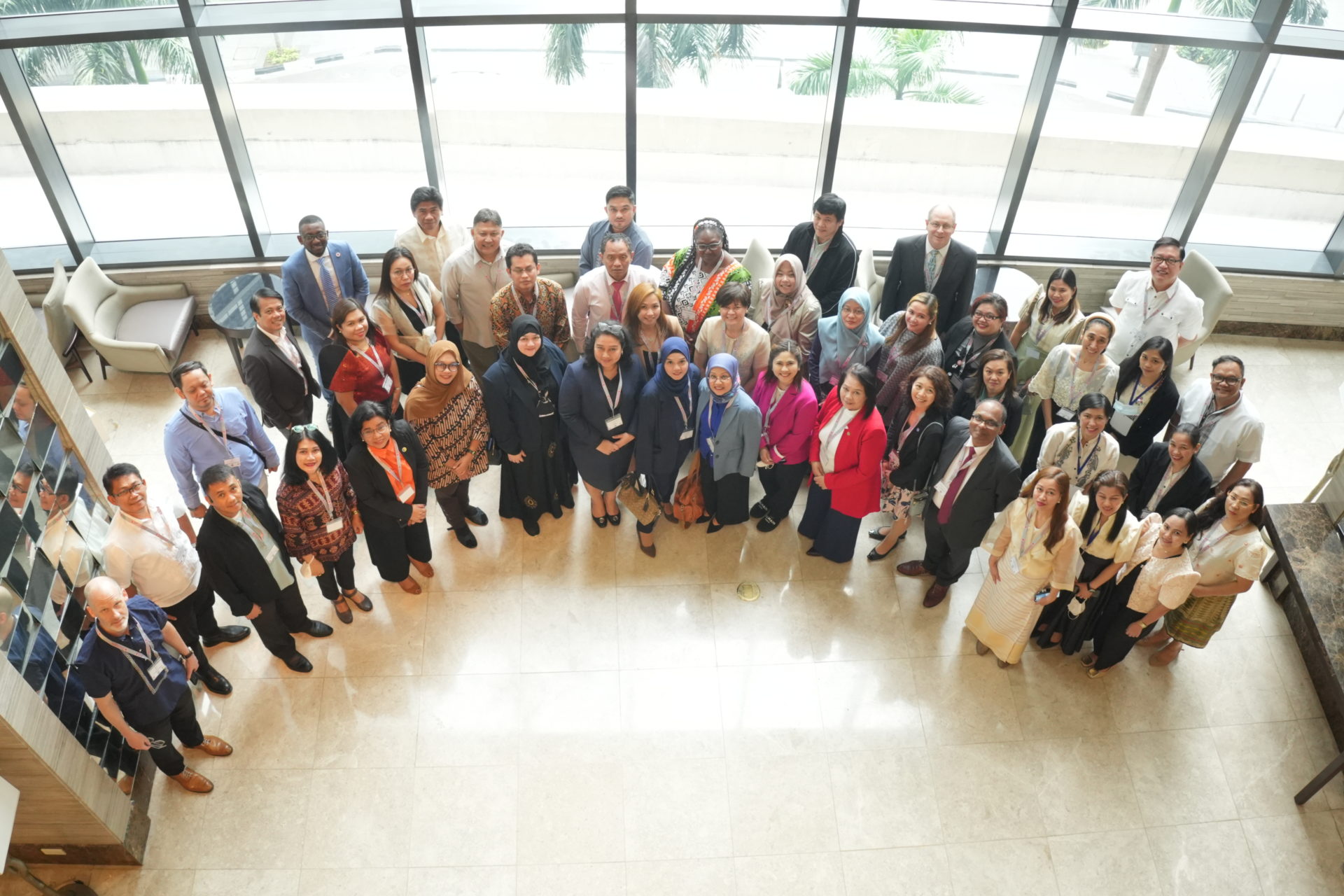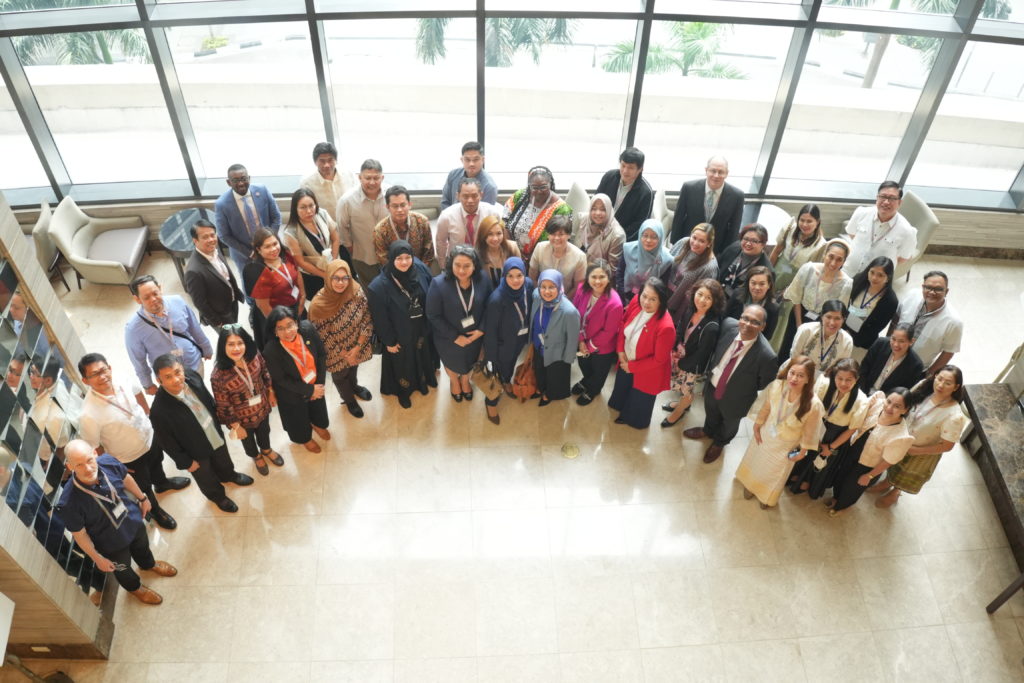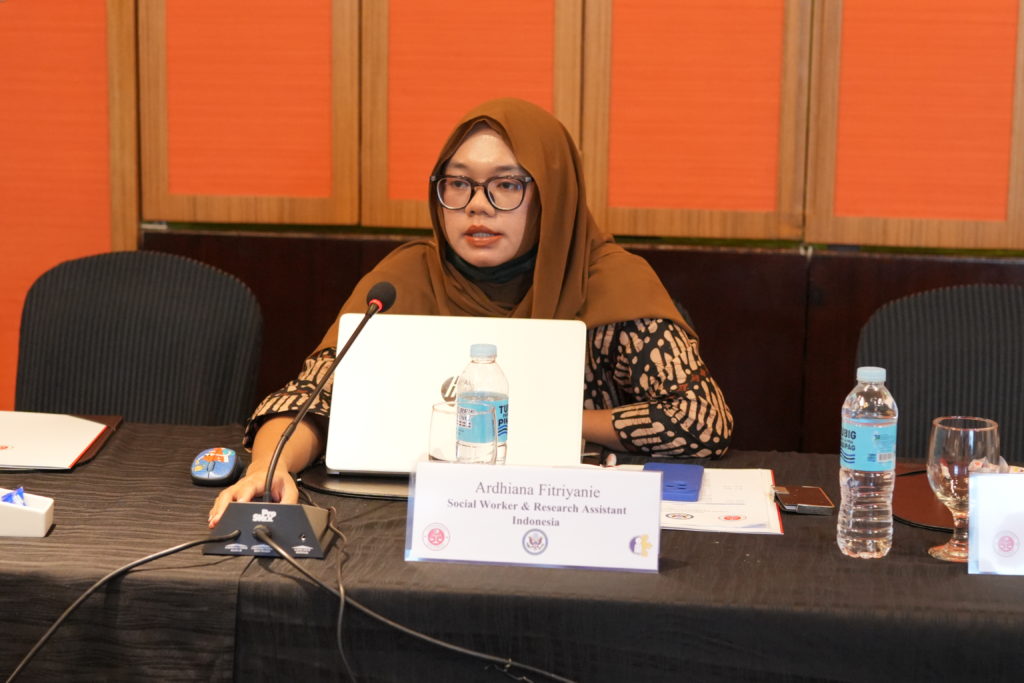
From 8-10 March, the International Institute for Justice and the Rule of Law (IIJ), in collaboration with the Philippines’ Juvenile Justice and Welfare Council (JJWC), travelled to Manila to convene its first in-person post-COVID regional juvenile justice programme in South East Asia. The IIJ Juvenile Justice Initiative: Southeast Asia Regional Workshop on Justice for Children in a Counter-Terrorism Context, generously sponsored by the U.S. Department of State’s Counterterrorism Bureau, opened on International Women’s Day with a symbolic representation of 70% of women throughout the event. The regional programme brought together 49 experienced investigators, prosecutors, public defenders, judges, social workers and other relevant actors from Indonesia, Malaysia, The Philippines, and Singapore. They were joined by subject-matter specialists from Armenia, Kenya, Sri Lanka, the United Nations Office on Drugs and Crime (UNODC), and the United Nations Asia and Far East Institute for the Prevention of Crime and Treatment of Offenders (UNAFEI).

The workshop, aimed at enhancing the capacity of criminal justice actors handling terrorism matters to better manage children with whom they come into contact, included an analysis of the Philippines’ first-ever baseline study on children in a counter-terrorism context and an in-depth examination of the principles in the IIJ Juvenile Justice Notes for Practitioners and the GCTF’s Neuchatel Memorandum on Good Practices for Juvenile Justice in a Counterterrorism Context.

Participants explored key principles and findings regarding children’s neurological and emotional development and the associated vulnerability underlying the need to treat them differently than adults in counter-terrorism. Regional practitioners also discussed their main challenges while enforcing counter-terrorism measures affecting children. In addition, they discussed relevant alternatives to custodial measures and the importance of rehabilitation of children. Lastly, participants exchanged good practices, as well as their ideas on how to apply the IIJ Practitioners’ Notes within their own legal frameworks.
On the final day, each of the four national delegations conferred for three hours in breakout sessions, developing lists of challenges and relevant recommendations to propose to their ministries and departments to better handle children in a counter-terrorism context. The Philippines’ Department of Social Welfare and Development (the JJWC parent organization) closed the event by revealing a detailed plan consisting of specific time-bound action items from the dissemination of the IIJ Practitioners’ Notes at the national level, related activities in Southeast Asia, up to the submission of the programme recommendations at the ASEAN Senior Officials Meeting on Social Welfare and Development.
